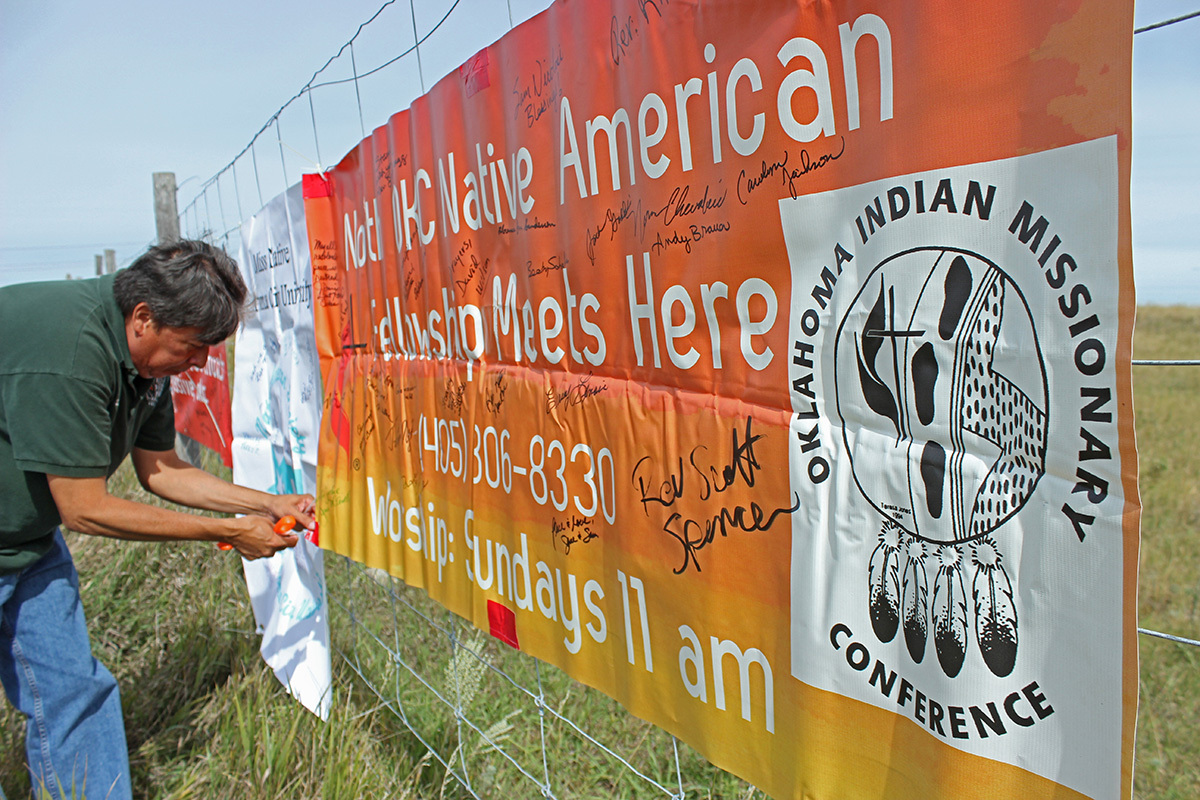
Court ruling temporarily halts Dakota pipeline

The Rev. David Wilson, conference superintendent of the Oklahoma Indian Missionary Conference of the United Methodist Church, attaches banners from his conference to a fence near the Dakotas Access Pipeline, Highway 1806, near Cannon Ball, N.D. File photo by Dave Stucke, Dakotas Conference.
A new court ruling gives a boost to continuing efforts by the Standing Rock Sioux Tribe and others to stop the Dakota Access Pipeline, say United Methodist supporters.
“People often think this has been over for some time, but it hasn’t been,” said the Rev. David Wilson, conference superintendent of the United Methodist Oklahoma Indian Missionary Conference, about the fight over the pipeline.
The U.S. District Court for the District of Columbia ruled July 6 that the Dakota Access Pipeline must shut down by Aug. 5 while an in-depth environmental review of the project is conducted.
Since 2016, there have been several court rulings regarding the pipeline’s route and its environmental impact. An executive order issued by President Donald Trump on Jan. 24, 2017, just after he took office, had allowed construction of the pipeline to proceed.
The Standing Rock Sioux Tribe, which includes members of the Lakota and Dakota nations, has fought against the $3.8 billion pipeline for years over concerns about polluted drinking water and the disturbance of sacred Native American sites.
That fight received sustained national attention in 2016 after the tribe rallied supporters to the cause by establishing a protest campsite area in North Dakota that became known to many simply as “Standing Rock.”
The struggle intensified in the summer of 2016, when additional protestors joined a Standing Rock protest camp near its reservation in North Dakota. Support came from the denomination’s Dakotas-Minnesota Area. In a blog post, Bishop Bruce R. Ough characterized the protest as “a spiritual battle” of the Lakota and Dakota people, “informed by the memory of broken treaties and disingenuous promises.”
Ough echoed that description in a July 8 interview with UM News about the new court ruling.
“This is a legal injunction or legal action that stops the use of the pipeline, so in some ways, it’s really a victory for the Standing Rock Sioux Tribe and other indigenous people,” he said.
But, he added, the ruling probably cannot address the fact that the tribe’s concern “is primarily a spiritual matter, a spiritual battle.” For the real healing to take place, he stressed, “the underlying work still needs to go on.”
For Ough, that means “respecting cultural and indigenous rights and caring for the water of all creation.”